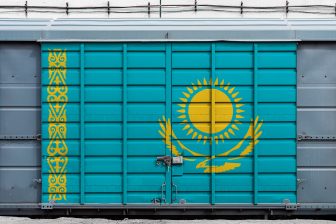
Attention! New regulation of food exporting to China is taking effect
From 1 January 2022, all overseas food producing, processing, and storage companies must be officially registered at the General Administration of Customs in China (GACC) to export food products to China. Under the regulation currently in force, registration obligation only applies to manufacturers of high-risk food such as meat, fish, infant formula etc.
Do you want to read the full article?
Thank you for visiting RailFreight.com. Become a member of RailFreight Premium and get full access to all our premium content.
Are you already a member?
Having problems logging in? Call +31(0)10 280 1000 or send an email to customerdesk@promedia.nl.




